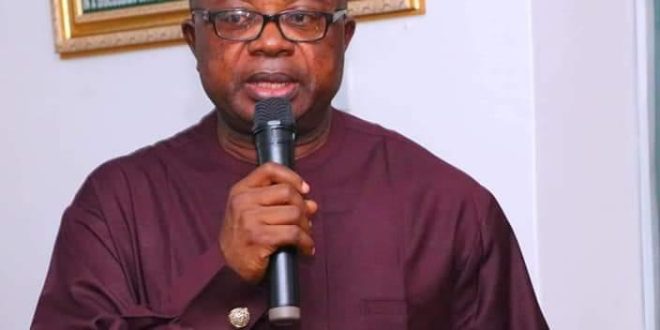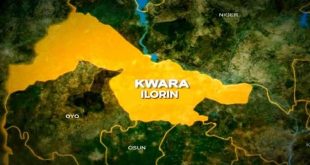By Gloria Ada Oguamanam
As the world converges in Belém, Brazil, for the highly anticipated COP30 Climate Conference scheduled from November 10 to 21, 2025, Nigeria stands once again at the forefront of global environmental discourse.
Among the nation’s delegation of eminent figures is Rt. Hon. Sam Ifeanyichukwu Onuigbo KJW, the acclaimed Father of Nigeria’s Climate Change Act 2021, a title he has earned through years of relentless advocacy, legislative foresight, and consistent representation on the global stage.
The leader of the Nigerian delegation is Vice President Kashim Shettima. Rt. Hon. Onuigbo will be attending alongside Minister of Environment Balarabe Abbas Lawal, Director General of the National Council on Climate Change Mrs. Omotenioye Majekodunmi, Minister of Foreign Affairs Yusuf Maitama Tuggar, National Assembly members, climate change advocates, and several other experts. Together, they represent Nigeria’s renewed commitment to sustainable governance, clean energy transition, and climate resilience under the administration of President Bola Ahmed Tinubu.
*A Legacy of Commitment and Continuity:*
Rt. Hon. Sam Onuigbo’s participation at COP30 reflects not only his personal dedication but also his ongoing role as a key custodian of Nigeria’s environmental vision. Over the years, his presence has been felt at numerous international climate forums, including COP21 (Paris, 2015), COP22 (Marrakesh, 2016), IRENA Assembly (Abu Dhabi, 2017) COP23 (Bonn, 2017), IRENA Assembly (Jan 2020), COP26 (Glasgow, 2021), COP27 (Sharm El-Sheikh, 2022), COP28 (Dubai, 2023), and COP29 (Baku, 2024), each representing a chapter in his unwavering mission to integrate legislative action with practical climate solutions. It was his pivotal sponsorship of the Climate Change Act 2021, signed into law on November 17, 2021, by late President Muhammadu Buhari, that institutionalized Nigeria’s climate governance framework, positioning the country as a continental leader in environmental policy.
The Act established a coordinated approach for emissions reduction, carbon management, and adaptation, with Rt. Hon. Onuigbo serving as its moral compass and policy anchor.
*Presidential Reinforcement of Climate Governance:*
President Bola Ahmed Tinubu’s administration has further cemented Nigeria’s direction by activating and reinforcing key pillars of the Climate Change Act. The President’s recent actions included the approval of the National Carbon Market Framework, in line with Sections 4(i) and 4(j), the Operationalization of the Climate Change Fund consistent with Section 15 of the Act, and the reaffirmation of his authority as the Chairman of the National Council on Climate Change.
In addition, the administration has shown commitment to strengthening the institutional framework of the National Council on Climate Change (NCCC) through budgetary recognition and integration within the national fiscal planning process. This marks a significant step toward ensuring that climate governance is embedded within Nigeria’s economic and developmental agenda, promoting transparency, accountability, and long-term sustainability.
Through these decisive moves, President Tinubu has effectively stamped his seal of authority on the 2021 Climate Change Act, not as a formality, but as an operational strategy to elevate Nigeria’s climate response.
*A Framework Rooted in the President’s 2023 Budget Vision:*
In his November 2023 budget address, President Tinubu notably underscored the economic and development opportunities that can potentially be achieved while battling the devastating impacts of climate change. Early paragraphs of that address outlined his intent to “mainstream climate resilience into Nigeria’s fiscal planning while developing the nation’s carbon market infrastructure and promoting a green economy.” In three successive paragraphs, he declared:
23. “As we approach COP28 climate summit, a pivotal moment for global climate action, I have directed relevant government agencies to diligently work towards securing substantial funding commitments that will bolster Nigeria’s energy transition.”
24. “It is imperative that we seize this opportunity to attract international partnerships and investments that align with our national goals. I call upon our representatives to engage proactively to showcase the strides we have made in the quest to create an enabling environment for sustainable energy projects.”
25. “Together, we will strive for Nigeria to emerge from COP28 with tangible commitments, reinforcing our dedication to a future where energy is not only a catalyst for development but also a driver of environmental stewardship.”
In line with his commitment to climate action, after giving the above-referenced budget speech, President Tinubu personally attended COP28, where he exercised leadership by participating in many high-level meetings. His direct involvement added momentum to Nigeria’s successful participation in COP28.
*Onuigbo as The Living Symbol of Nigeria’s Climate Mandate*
As he prepares for COP30, Rt. Hon. Onuigbo’s presence embodies continuity, expertise, and moral conviction. His legislative stewardship transformed a once-abstract climate conversation into a living national framework. Over the years, he has not only participated in the making of climate policy but has lived as its advocate, bridging the gap between law, leadership, and lived impact.
In his recent interview with NTA Abuja, before heading out to Belém, Brazil, Rt. Hon. Onuigbo reaffirmed this same unwavering commitment to climate action and environmental protection. He emphasized the transformative impact of the Climate Change Act 2021 and its foundational and institutional provisions for the Nigerian Carbon Market Framework. He also highlighted the urgent environmental challenges facing his constituency, especially the severe erosion devastations in Obuohia-Ibere, Ikwuano and other badly threatened communities in Nigeria.
Speaking with empathy and conviction, he drew attention to the social and economic effects of these issues of loss of farmlands, displacement of families, and restricted community access, calling on government agencies to act decisively. He also restated his dual role as the Vice-President (Africa) of GLOBE International and his position as Senior Advisor with Climate Parliament, Chairman, Committee on Security, Climate Change, and Special Interventions on the Governing Board of the North East Development Commission, positions through which he continues to champion collaboration, climate education, and policy implementation.
Above all, his message was clear: the time for urgent action is now, and Nigeria must continue to lead by example through accountability, inclusion, and sustained advocacy.
In a recent statement, Rt. Hon. Onuigbo had expressed optimism that Nigeria’s strengthened institutional structure under the current administration would “enable the nation to fully leverage global partnerships and domestic innovation for sustainable growth.” His attendance at COP30 thus symbolizes Nigeria’s unity of purpose, from legislative vision to executive implementation.
*A Defining Moment for Nigeria and the World:*
With global attention turning toward Brazil for COP30, Nigeria’s delegation carries both the weight of responsibility and the hope of transformation. Rt. Hon. Sam Onuigbo’s role as the Champion of the Climate Change Act reinforces Nigeria’s identity as a nation of resilience, intellect, and foresight one that recognizes the urgency of aligning governance with planetary well-being.
As the conference unfolds from November 10 to 21, 2025, Nigerians and the international community watch expectantly. The convergence of the executive leadership under President Tinubu and legislative champions like Rt. Hon. Onuigbo offers a transparent, forward-looking framework for Nigeria’s climate future; one rooted not in rhetoric but in real, measurable action.
Indeed, this is not just another global summit; it is a continuum of Nigeria’s environmental journey, where policy, leadership, and destiny meet on the world stage.
 GongNews … truth in defense of a just society
GongNews … truth in defense of a just society




